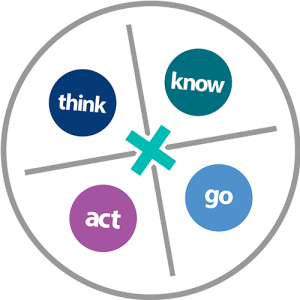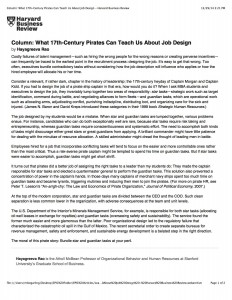Research & Resources

What Works in the Classroom? Ask the Students
This New York Times article by Sam Dillon reviews a huge research project that suggests that students may offer important feedback regarding the effectiveness of teachers.
Another Inconvenient Truth: Race and Ethnicity Matter
University professors and researchers Willis Hawley and Sonia Nieto breakdown issues and misconceptions that some educators have about dealing with issues of race and ethnicity in the classroom. They offer three race- and ethnicity-conscious strategies for school improvement, centered around…
Leaving Nothing to Chance
Karin Chenoweth tackles issues surrounding disadvantaged students and elevates them from the classroom level to the school level. Based on research in nearly two dozen high performance, high poverty schools, Chenoweth constructs a model of how schools can reach disadvantaged…
Watching the Game and Not Just Keeping Score
Authors Marsha Ing and Kenneth Montgomery discuss one school district’s attempt to use classroom visits to improve instruction. They argue that instructional observations can improve instruction, but offer guidelines for observations after discussing the shortcomings in the district’s experimental practices.
Oregon Mathematics Standards Verification Technical Report
The Oregon Department of Education (ODE) conducted an achievement standards verification process for the Oregon Assessment of Knowledge and Skills for Mathematics on August 9-11, 2010. The research-based Bookmark Procedure was used to recommend achievement standards (cut scores) for Grades…
Calling All Frequent Flyers
In “Calling All Frequent Flyers,” Greene proposes a new system for dealing with what he calls “frequent flyers”: students who must frequently see school administration for disciplinary issues.
Drastic School Turnaround Strategies Are Risky
Jane L. David examines the research around drastic methods of school reform such as firing principals and teachers or closing failing schools. Ultimately, she recommends multiple coordinated strategies tailored to the school’s particular circumstances and constant review and revision.
What 17th-Century Pirates Can Teach Us About Job Design
Hayagreeva Rao stresses the importance of properly designing a job to avoid hiring the wrong people for the wrong reasons. He argues that when designing a job, it should either involve star tasks (strategic work) or guardian tasks (operational work).
Lazy–Or Not?
Psychologist Peg Dawson suggests that children who struggle in school despite strong cognitive skills may be deficit in executive skills, not lazy. She suggests a number of strategies to help students develop executive skills.
Purpose: The Foundation for High-Quality Teaching
Douglas Fisher and Nancy Frey suggest educators create purpose statements for each lesson to make the purpose very clear.
![[Graphic] Our best work begins in conversation with people who care about students. We should talk.](https://inflexion.org/wp-content/uploads/2018/02/Contact-Us-graphics.png)
Partner with Inflexion
At Inflexion, we know that although educational systems have similarities, they also have unique challenges. Fill out the form below, and we will get you in contact with the experts who can best assist you.










